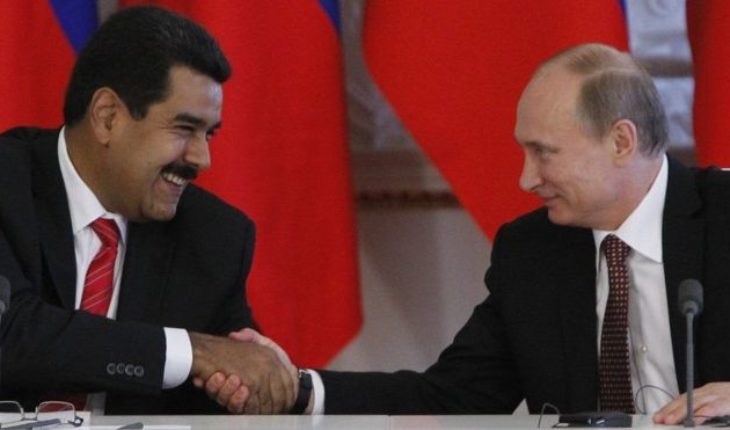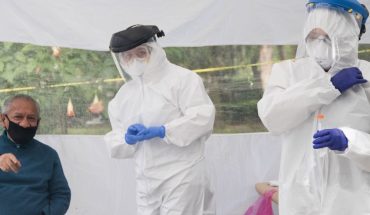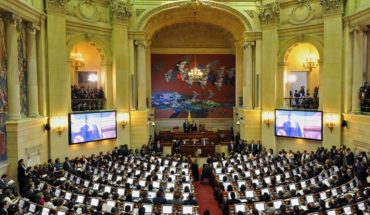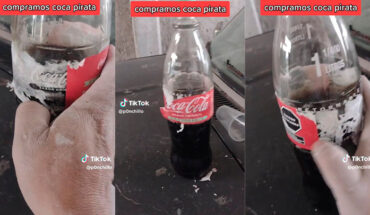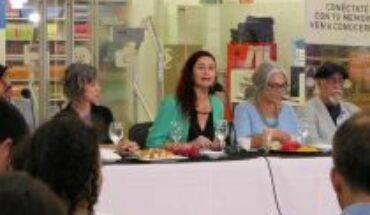When the Soviet Union competed with the United States by the global cold war supremacy, used to act with caution and out of the limelight in the neighborhood of Washington: Latin America.
But three decades after the fall of the Berlin wall, today Russia takes steps in Venezuela that challenge us in a way obvious and hard to imagine some time ago.
One of those steps was the recent shipment of Russian military aircraft to Venezuela, where Moscow backs President Nicolas Maduro and Washington supports efforts to overthrow him led by Juan Guaidó.
Two aircraft with Russian military personnel landed in late March at the international airport in Caracas, not in secret but in visible and daytime schedule for those who pass by there.
The President of USA, Donald Trump, warned that “Russia must leave” of Venezuela and his Personal Envoy to that country, Elliott Abrams, told the BBC that “the Russians will pay a price”.
However, in statements collected by the Russian news agency Interfax on Thursday Venezuelan Deputy Foreign Minister Yvan Gil stated that his country could become more Russian military to comply with agreements of cooperation.
A plane with Russian flag at Caracas international airport in March. This military presence of Russia in a Latin American country where U.S. pressed for a change of Government is seen by experts as something exceptional, even for the old parameters of the cold war.
“It is unusual indeed. This type of challenges were widely during the cold war in neighborhoods from each other”, says James Hershberg, a Professor of history and international relations at George Washington University, to the BBC.
“Spheres of influence” as well as the defunct USSR usually avoided direct intervention in Latin America, USA did the same in Eastern Europe during the cold war.
Both regions were considered “spheres of influence” of the two global superpowers, places where they had broad political and military control at least unofficially.
Although there were exceptions to these rules implied. One of them was Cuba.
U.S. aircraft besieged the Russian boats that approached to Cuba during the “missile crisis” by 1962.Cuando in 1962 a plane U.S. spy discovered the installation of Soviet nuclear missiles on the island, the world was on the brink of war nuclear, in what is known as the “missile crisis”.
But in general support of the USSR ideologically allied forces in Latin America was limited, covert and through third parties, with Cuba acting as the main promoter of guerrillas in the subcontinent.
A secret U.S. intelligence report established in 1982 that, despite the existing interest, “the geographic remoteness has tended to relegate to Latin America, except Cuba, to the periphery of the Soviet security concerns”.
The text, which was declassified years later, noted that the USSR had only to Peru as a main client of their weapons in the region. But he clarified that “Moscow military relationship with Lima gave the Soviets little influence on Peruvian politics”.
Russia is now a crucial international support of Maduro, whose Government and that of his predecessor, Hugo Chávez (1999-2013), signed contracts for billions of dollars Moscow provide you and to keep warplanes, tanks and air defense systems.
Russia has sold fighter jets to Venezuela.Es according to those contracts that would have reached the Russian planes to Caracas in March.
“Venezuela since Chavez time has not been a country considered under the American influence,” says Hershberg.
But he added that the Russian military presence in the country during the current crisis “shows that low Trump, Russia feels encouraged to not respect the idea that USA has some status in the area that prevents him from doing so. That, by the way, seems unusual.”
“A big risk” historically, the idea that U.S. has an influence in Latin America has been based on the Monroe doctrine.
Presented by President James Monroe in 1823 and summarized in the phrase “America for the Americans”, that doctrine rejected colonialism in the continent and established that any European intervention would be seen as an aggression that would require the intervention of USA, which then expanded its own influence in the hemisphere.
Donald Trump, has said that “Russia has to leave” of Venezuela. The question is how will achieve it. After the end of the cold war, the Government of Barack Obama stated the purpose of the Monroe doctrine in 2013. But his successor Trump has been determined to revive it.
And this has motivated enough direct warnings from Washington to Russia and China. The differences with Moscow in Venezuela marked the highest point of these tensions.
When journalists asked him to Trump at the end of March how would the Russians to come out of Venezuela, the President said that “all options are open”.
This means in fact the warning of possible military action.
And his advisor for national security, John Bolton, then released a statement that evoked the Monroe doctrine.
“We strongly warn external actors to the Western Hemisphere against the deployment of military assets in Venezuela, or anywhere else in the hemisphere, with the intention of establishing or expanding the military operations. We believe such provocative actions as a direct threat to the international peace and security in the region,”said Bolton.
But the Kremlin has rejected calls from Trump and his Government, indicating, according to the Russian Agency RIA, that his presence in Venezuela was agreed upon with the Government of that country and is legal.
Vladimir Putin and a move of uncertain in the crisis of Venezuela.Algunos outcome experts begin to question if the Russian President, Vladimir Putin, will be close in Venezuela to a situation like that Soviet leader Nikita Jruschov faced in the field of influence of US during the Cuban missile crisis.
“Putin has taken a great risk here, by publicly positioning a Russian military and cybernetic contingent in Venezuela, far from Russian territory, and a part of the world where U.S. has an overwhelming military dominance,” says Kimberly Marten, a teacher of the Barnard College of Columbia University Specialist in international security and Russia.
Foreign Russian Minister Sergei Lavrov, with the Vice President of Venezuela, Delcy Rodríguez, in a recent meeting in Moscow.” If Putin has miscalculated, then perhaps will deter any direct U.S. action, or perhaps make a space for Russia sit on the negotiating table to remove to mature while protecting Russian interests”, adds Marten in statements to BBC world.
But he warns that if Putin miscalculated, “it risks subject to your personal military in Venezuela to a direct attack from US that may not match” and occur “an escalation of conflict between two nuclear superpowers”.
“That is what risked Khrushchev in the 1962 Cuban missile crisis,” says Marten. “We can only hope that this conflict is resolved as peacefully as one”.
translated from Spanish: Venezuela crisis: why the military presence of Russia in the South American country defies the old rules of the cold war
April 9, 2019 |
